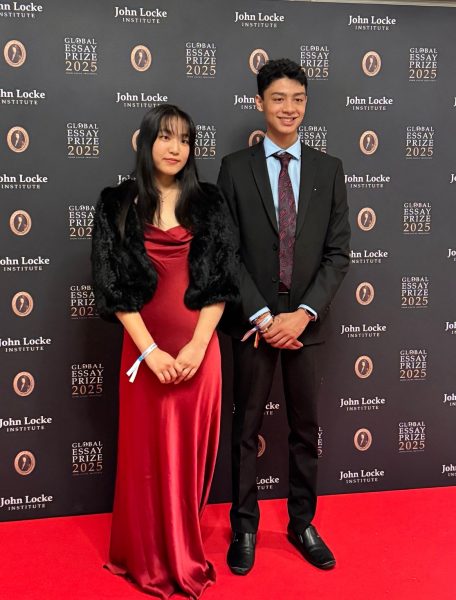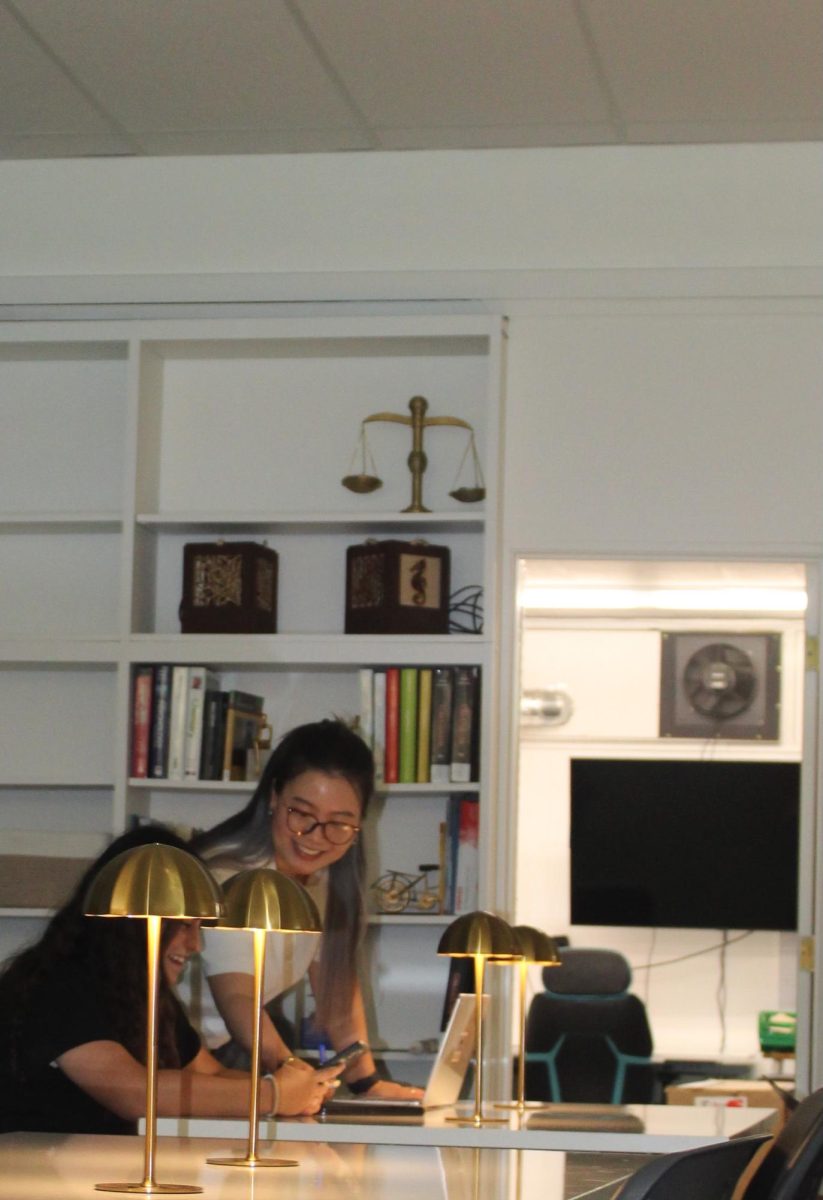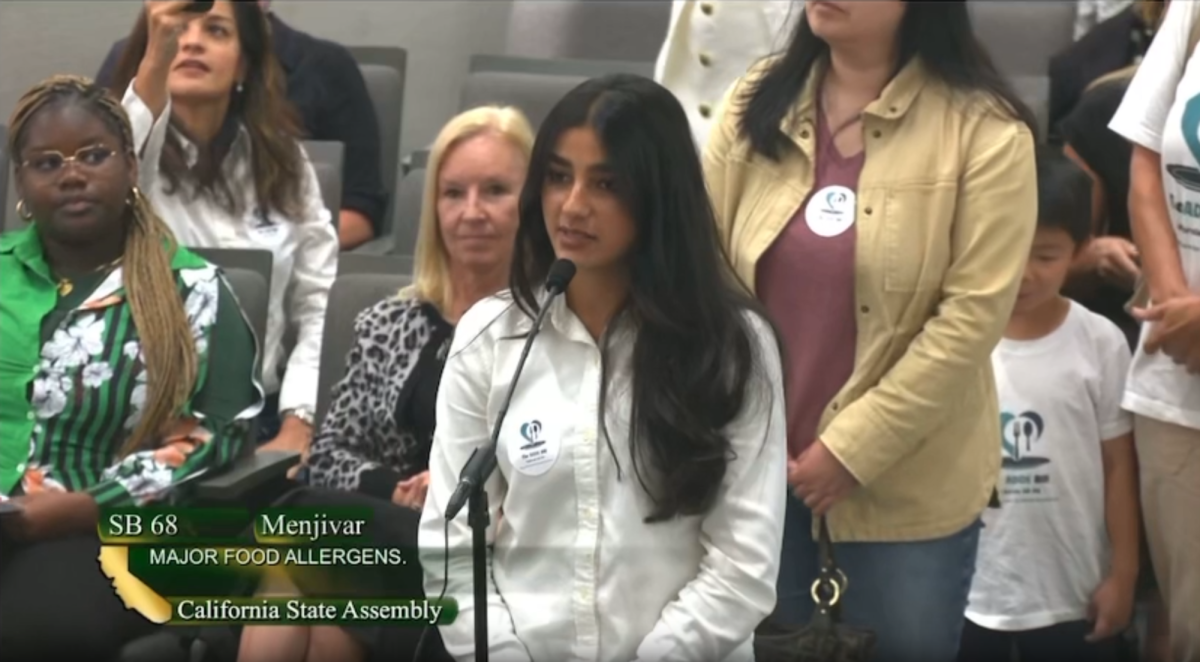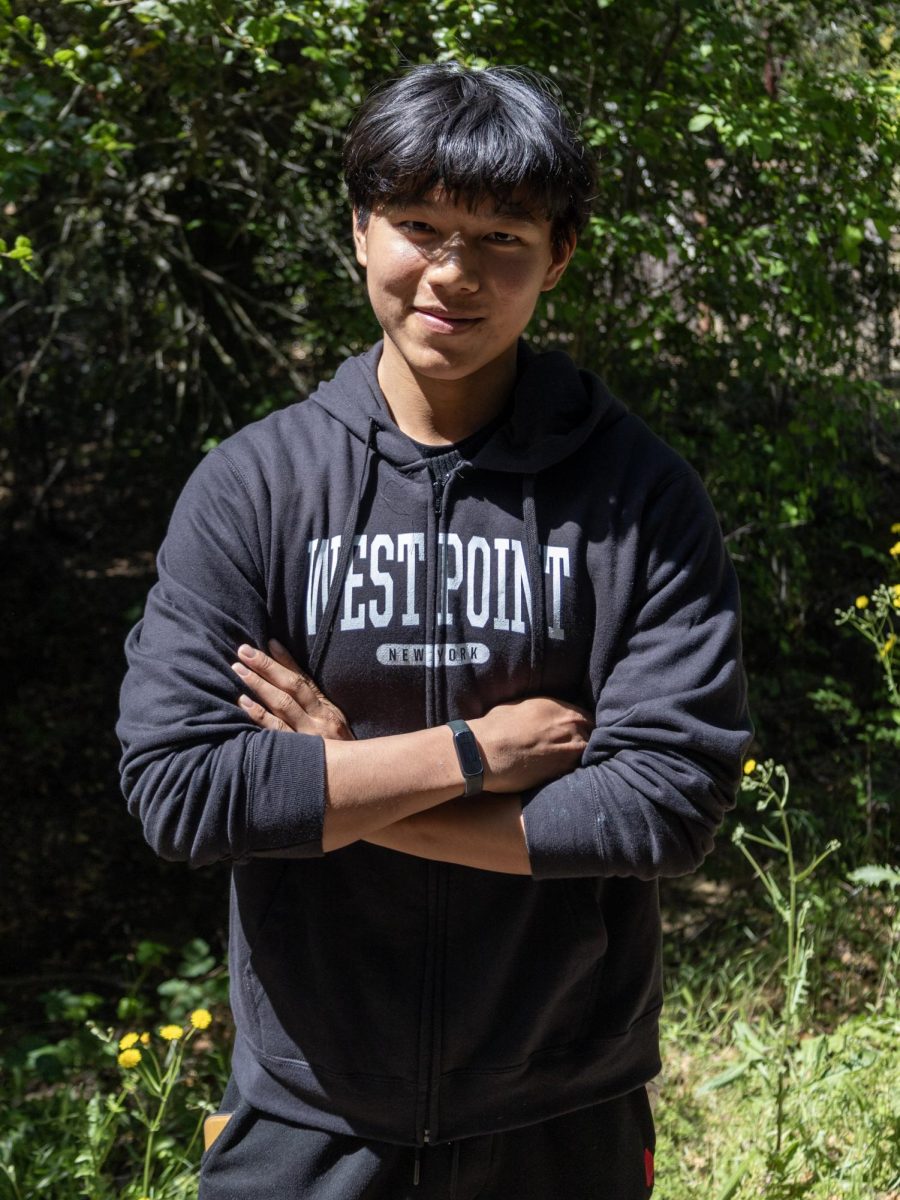The John Locke Essay Competition, one of the most prestigious international essay competitions in the world, received over 63,000 entries this year from over 190 countries. Out of all the submissions, juniors Claire Wu, Rishi Chen, and Yichen Wang placed exceptionally well and were shortlisted, a distinction earned by only 18% of the applicants.
Chen earned a Very High Commendation, placing in the top 0.1% of all entries, and Wu earned a High Commendation, placing in the top 3% of all entries.
For Wu and Wang, it was their first time competing in an essay competition.
“I heard of it through Rishi because he entered it, so I thought that I would too,” Wu said. “I feel like there aren’t that many humanities-related extracurriculars [at Pinewood] beyond essays or creative writing … so I decided to try it.”
Chen, Wang, and Wu each did very rigorous research, collecting information from around 30 sources to make an argument about different open-ended topics that interested them.
Chen wrote to answer the following question: should all politicians be punished for lying?
To support his argument, he centered his essay around John Locke’s natural rights, rights that are inherent to all people, including life, liberty, and property.
“I argued that it’s very easy in democracy for a lie to infringe upon these natural rights,” Chen said. “But politicians have found a way around [granting natural rights] by lying, and they use lies as a way to disguise their natural rights.”
He cited American slavery as an example where politicians effectively manipulated the whole country into thinking that slavery was acceptable, when in reality, it was failing to uphold our most basic human rights.
“Terrible lies enabled the American public to be deceived into the fact that the United States was a free country,” Chen said.
Wu wrote to answer a different question: diversity is fashionable, but is it valuable? She argued that diversity alone is not enough to create lasting social change in workplaces and schools; there must also be a focus on effective social integration.
“Diversity is an issue that’s more pertinent to me,” Wu said. “College applications are nearing for me, and diversity has been a contested issue in the school application realm.”
Wang chose the psychology category and wrote on the following question: what is self-deceit? Inspired by his own personal experiences, Wang argued that self-deception is something that can be useful to yourself but damaging to others.
“I’m interested in the question, especially since I was having a lot of debates with myself about decisions I made in real life,” Wang said. “Was I deceiving myself in some of [the decisions]?”
Wu and Chen traveled to London on Oct. 3 to attend the awards ceremony, where they had the chance to listen to many highly qualified speakers.
As Chen reflects on this process, he feels extremely proud for all of his hard work and dedication.
“It just feels so rewarding because I worked so hard on this essay,” Chen said. “It was very validating for me.”
Wang encourages those who are considering joining a similar essay competition to focus on diving deep into a topic while also learning about yourself.
“Just know that the reason you’re writing an essay is not because you’re hoping to win, but it’s more about self-discovery,” Wang said.






